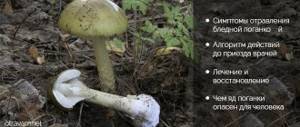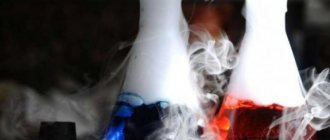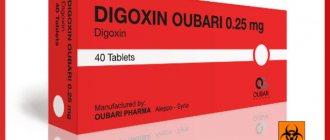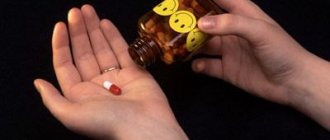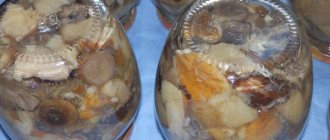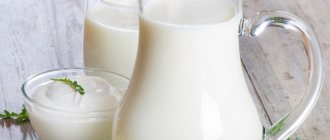Parrots are popular pets with curious personalities and love to try anything they can get their hands on. The natural instinct of self-preservation is not able to protect birds from the temptation to try toxic substances. If a bird is poisoned, you should act immediately: intoxication develops quite quickly. Its speed is explained by the small size of parrots and accelerated metabolic processes.
Danger for feathered pets comes from infected food, poisonous plants, and cherry pits, which contain hydrocyanic acid. Indoor plants, such as philodedron, can also be toxic to parrots.
Feathered friends should not be given food from the human table: they can be poisoned from homemade pickles or herring. Alcohol and smoke from tobacco products can cause severe intoxication. To get poisoned, a bird only needs to peck at a paint coating that contains heavy metal salts. Disinfectants containing bleach or foralin are toxic to birds. Various drugs are used to combat ectoparasites, but in excess quantities during long-term treatment they can end sadly. Food treated with chemicals is dangerous for the parrot. Do not give your pet food processed with fertilizers, table salt and herbicides. If a bird gets sick after eating poisoned food, it will die without veterinary care.
For small birds, lethal doses are negligible, for example: only 0.03% concentration of hexachlorane in the feed or 8% nicotine sulfate solution.
How to avoid poisoning a parrot
- Inspect the food carefully, preferably with a magnifying glass. If a grain or nut is affected by dark spots, it is probably a mold fungus.
- In a room with parrots, you should not smoke or spray aerosols (deodorants, insecticides, air fresheners, antistatic agents, etc.), or use paints, varnish, or solvents - this can also cause poisoning.
- If your parrot is able to fly around the room, make sure that it does not eat rodent or cockroach poison.
- An overdose of vitamins, especially oil vitamins, can also cause poisoning, so be careful when adding them to food.
Parrot poisoned: first aid
Emergency care when a parrot is poisoned is carried out by administering the drug in liquid form using a pipette or syringe. It is necessary to give the bird an adsorbent.
It can be:
- Activated carbon;
- polyphepane;
- enterosgel;
After the adsorbent, other drugs should be administered, as there may be no effect.
A decoction of flax seed and Glauber's salt are given as a laxative. If vomiting occurs, you should take 1 drop of Cerucala.
When there are disturbances in the liver (litter changes), you need to give your pet 1 tablet of Karsil per day . The tablet is also added to the food for 30 days after intoxication.
Liquid droppings
What to do if your budgerigar has liquid droppings?
- Wash the area around the cloaca, clean the feathers from any remaining excrement, as they are a breeding ground for infection.
- Rinse the bird's eyes and cloaca with chamomile decoction. Also pour this broth into the drinking bowl, remembering to change it every two hours.
- Disinfect the cage.
- Offer your parrot rice boiled in water, which has an astringent effect for digestive problems.
- The liquid green droppings should stop. If this does not happen, go to the doctor.
- During illness, the bird freezes and sits ruffled. Install an infrared lamp above her home, blocking off with a piece of fabric a place where she could hide if desired. But this is done only if there are no traces of blood in the litter.
The temperature in the room with the sick bird is maintained at +25 degrees, humidity 65%. If there is no special lamp, then you can use a regular 60 W incandescent lamp, which generates heat!
How to treat diarrhea
You need to know that diarrhea requires IMMEDIATE treatment. In a parrot, all processes in the body go through very quickly, so the clock literally counts.
- If the pet does not refuse food, sprinkle the food with karsil, rubbing half a tablet of the medicine.
- For liquid green droppings, use activated carbon at first, grinding the tablet and adding it to boiled rice.
- Drink chamomile decoction.
- Green droppings in a budgerigar can be stopped by adding the immunomodulator Gamavit to the treatment. It is poured into the drinking bowl at the rate of 0.5 ml per 50 g of clean water. Treat this way for a week.
- Sometimes they use Vetom 1.1. This is an immunomodulating drug with Bacillus subtilis microorganisms to improve digestion and restore intestinal microflora. It is added to the water at the tip of a knife.
- The food is also sprinkled with Linex (one capsule).
During treatment, move the cage with your feathered friend to a quiet, calm place.
Diarrhea due to stress or eating stale fruit should stop after such treatment. If troubles last five days or more, this indicates a more serious problem.
If, unfortunately, treatment does not bring results, contact your veterinarian immediately. This may indicate a serious illness in the pet.
Diseases and treatment of budgies and Karella parrots are the same. Liquid green droppings in both cases are caused by similar reasons.
They are given in parallel with the above drugs Smecta, Enterosgel. The doctor will probably prescribe antibiotics (Baytril) and immunomodulatory drugs. But this treatment is only after examination by a veterinarian.
Diarrhea in a budgie: treating diarrhea at home
It is not uncommon for the owner to notice liquid excrement in the cage of a budgerigar. If this phenomenon lasts for several days, then it should cause concern.
For various reasons, a budgie may have diarrhea; treatment in each case is selected individually. By taking a closer look at the factors that cause loose stools in your pet, it will be easier for you to provide him with proper care.
In some cases, it will be necessary to reconsider living conditions and care.
What causes diarrhea?
Most often, the cause of loose stools is poor quality food that the budgie eats. Stale food and water can cause diarrhea.
If your pet eats contaminated food, sour grain, and fruits that are starting to rot, this can have a negative impact on his well-being. Millet must be present in the poultry's diet, since its absence in the diet causes stomach upset.
When a budgie consumes an increased amount of greens, this can also cause diarrhea.
It is worth remembering that diarrhea is not a separate disease, but a symptom indicating the presence of health problems. The following pathologies can cause malaise and liquid discharge:
- Kidney, intestinal or liver disease. Budgerigars have a fairly sensitive gastrointestinal tract, so eating stale food can cause illness.
- Infectious diseases. The cause of the disease is being in a cage with another sick bird or unsatisfactory living conditions at the breeder.
- Stressful situations. Most often, a pet feels discomfort when moving to another cage, the appearance of a new neighbor, or as a result of fright;
- Long-term use of antibiotics. Treating another condition may end up causing diarrhea.
- Goiter inflammation. This is a dangerous disease that, if left untreated, can be fatal. Poor quality food can provoke inflammatory processes; the wavy is bothered by vomiting and loose stools.
- Constant exposure of the cage to a draft.
The appearance of your budgie will indicate whether you should be concerned about its health or not. If your pet has a clean beak and smooth plumage, then there is no reason to worry.
When should you worry?
Treatment for diarrhea in your budgie should be started immediately if there are any alarming symptoms. If a bird has not only loose stools, but also vomiting, then it needs immediate help.
When a wavy has no appetite and often sits on a perch with its feathers ruffled, this is an alarming symptom. In a sick animal, the feathers near the cloaca are constantly dirty and stuck together.
Your pet has been acting apathetic lately and often closes his eyes - another sign to be wary.
Determine that something is wrong with the parrot by visually examining its liquid droppings. Based on the color and consistency of the feces, it will be easier to determine what is wrong with your pet. Pay attention to the following features:
- Presence of undigested grains in feces. Indicates the presence of infection, goiter inflammation or fungal disease.
- Green droppings or yellow-green. This sign indicates liver problems. In some cases, green stool is due to food poisoning or parasites.
- There is no white matter in liquid stool. This symptom warns of problems with the nervous system.
- There is a lot of white matter in the feces. The animal suffers from kidney failure or arthritis.
- Black stool with a lot of fluid. The bird may have stomach or nervous system problems.
- White feces with a grayish tint. The pet is worried about pancreatic disease, this especially often happens if the diet contains a lot of fatty foods.
Seek help from your veterinarian if the color of the feces is dark red or red.
First aid
When you have identified diarrhea in your budgerigar, try to choose the most correct treatment. A few simple measures will improve your pet's well-being. If the bird does not live alone in the cage, move it to another house. This measure will avoid infecting your cage neighbor.
If stress is the cause of diarrhea, then try to improve your pet's living conditions. Try to move the house to a quiet place where harsh noise and light will not disturb. After 2-3 days, your pet should feel much better and loose stools should go away. If after a few days there is no improvement, then take your budgie to a specialist for an examination.
"Attention. If you want to help your bird get rid of diarrhea faster, try not to harm it. During quarantine, do not give your pet medications intended for humans, because in such a case you can only worsen the problem.”
It will be much easier to monitor the condition of a sick bird by placing white paper on the bottom of the cage. Based on the color and consistency of the droppings, it will be possible to understand whether the pet is on the road to recovery or not.
Try to improve the living conditions of the bird in the house. Eliminate all drafts in the room. Very often, during an illness, a pet begins to freeze, so use an infrared lamp for heating, so it will feel much better. Place a lamp near the cage for 2-3 hours a day.
Change your diet
An integral component of successful treatment of diarrhea in every budgie is a change in diet. Remove foods that may further aggravate the bird's condition. Exclude greens, fruits and seeds from your budgie's diet during the quarantine period.
Millet and oats should be a mandatory part of your pet's diet. If you have diarrhea, you should start giving your animal rice. This product has an astringent and enveloping property, which makes intestinal upset go away faster. Cook the rice without adding salt, milk or sweetener.
Try changing the food to a product of a different brand with a different composition. Try to change the water on time so that it does not have time to stagnate. Feces should not get into liquid and water, be careful about this.
What should be the treatment?
You will be able to eliminate the exact causes of diarrhea only after visiting a specialist. Most often, the veterinarian recommends getting tested for bacteria and parasites. In the process of combating diarrhea, the bird is prescribed vitamins, an adsorbent and probiotics to restore the intestinal microflora.
The use of activated carbon will help speed up your pet's recovery process. If the cause of diarrhea is poisoning, then you can give the animal charcoal daily for medicinal purposes.
Experts recommend giving activated carbon along with boiled rice. Experts advise giving the budgerigar absorbent in small quantities three times a day for three days. The pet is prescribed 0.
5 tablets, knead it first.
A decoction of St. John's wort and chamomile has a noticeable antiseptic effect. To improve well-being, give your animal infusions daily. Prepare the solution according to the instructions. Before giving it to your budgie, the broth is diluted with water in equal quantities.
Quite often, to speed up a pet’s recovery from infections, an immunomodulator is prescribed. Pay attention to the drug "Gamavit". It is best to give the immunomodulator in an amount of 0.5 ml. for 50 ml. liquids. Duration of treatment is a week.
Taking probiotics will help improve your well-being. After consultation with a specialist, he can prescribe Vetom 1.1 twice a day. It is added to the water at the tip of a knife. Simultaneously with Vetom1.1, you can take the dietary supplement Linex. Before giving her pet food, moisten it a little in advance and add 1 capsule.
Be sure to show your budgie to the vet if no results are visible after several days of treatment. Prolonged diarrhea can be life-threatening for the bird, do not forget about it. Timely assistance and care are very important for the well-being of the bird. Pay special attention to the quality of food and diet, as they are most often the cause of poisoning.
Source: https://mypopugaj.ru/ponos-u-volnistyh-popugaev/
Clinical picture
In case of poisoning, regardless of its cause, the behavior of the parrot changes significantly. The bird becomes unkempt, feathers are ruffled, weakness and refusal to eat are observed.
- convulsions, tremors of the head and wings;
- vomiting, foam from the beak area;
- coordination of movements is noticeably impaired;
- paralysis develops (the bird cannot move, although it is conscious);
- the consistency and color of the stool changes, it becomes liquid and acquires a green, black or red color;
- comatose state: the bird is motionless, breathing and heartbeat are slow, eyes are half-closed.
Before starting treatment, it is important to find out what exactly poisoned the bird.
- Nicotine (when pecking on cigarette butts): weakness, difficulty breathing, cyanosis of the mucous membranes, paralysis, convulsions, coma. Due to hemorrhages in the lungs and heart, rapid death occurs.
- Nicotine smoke: lethargy and weakness, drowsiness, lack of energy and depressed mood.
- Potassium permanganate: the pet becomes detached, the skin acquires a rich blue tint, the contents of the stomach and crop become purple.
- Table salt: swelling of the area around the goiter, muscle tremors, no appetite, but strong thirst. Possible loss of coordination.
- Zinc, lead: loss of appetite and foul odor from stomach contents, weakness, gastrointestinal upset and lack of coordination, paralysis and death.
- Various fertilizers: weakness, internal bleeding, inflammatory process in the small intestine, stomach.
- Hexachlorophene (found in laundry soaps and deodorants): the bird temporarily loses its vision.
- Alcohol: vomiting, loss of coordination, possible coma; in severe cases - death.
Comments (90)
Oksana
When my parrot sits, ruffled, his head is lowered a little and the cloaca is dirty, but he eats, bathes and drinks. What to do?
Natalia
We bought a parrot 2 days ago. The parrot still eats and drinks little, but today he was diarrhea. The discharge is greenish, what should I do?
Lyudmila
Hello, my parrot’s cloaca recently became dirty (everything is sticky), he eats and drinks. What to do? And what could be the reasons?
Alexandra
Good afternoon The parrot (girl, 3 years old) must lay an egg (the tummy is very swollen and the shape of the egg can be felt). The egg laying last time was very difficult and surgery was performed. Now the bird has yellow liquid droppings sticking to its feathers. The bird has become ruffled and a bunch of feathers have fallen out since yesterday (yesterday I cleaned and washed the entire cage). Tell me what to do? I give coal 2 rubles a day. Started yesterday. No improvement(((
Ruslan
Good afternoon. My budgie is having problems. sings very little and remains silent most of the day. sleeps a lot. green, loose stool. Today I started going down to the bottom of the cage and sleeping there. also slightly stooped and mostly disheveled. but he eats normally and drinks too. takes care of feathers. became bolder and more aggressive. I started biting my fingers sometimes until they bled. what is the reason for this behavior?
Natalya L.
Hello. My lovebird is in his third month, we have been with us for 2 weeks and during this time he has polyuria all the time, and if at first I thought it was from lettuce leaves..carrots..protein... now I only give him dry food without additives and oatmeal. In this case, the droppings are green with white splashes of greenish liquid, sometimes these are just drops of transparent green liquid. What to do?
Tanya
Hello, the parrot had diarrhea. He doesn’t eat, he’s lying on the floor, weak, what should I do?
Olga
Hello! My budgie, a 3-year-old girl, is not feeling well. Today is the 5th day. This is expressed in this way: for the first 3 days of the disease, she was aggressive and ran around the cage for kilometers, lay down in the feeder and scooped up food with her feet, attacked the food like she was hungry and ran again, and now she sits constantly shaggy and sleeps with her nose buried in her wing , instead of poop, water with white specks. Until today, I ate actively, one might even say I pounced on food as if I was very hungry. Food -2 teaspoons + oats. This unhealthy appetite lasted 4 days until today. Today he mostly sleeps, doesn’t react to anything, and doesn’t eat well. Every morning I wash the cage, wash the feeders, add fresh FIORI food in a vacuum (white packaging), RIO minerals, washed, certified KESHA oats. She used to always be cheerful and melodious, but now my soul aches for her. PS We have a problem with ornithologist doctors. HELP ME PLEASE!
Lena
Hello. Our girl, Wavy, has had litter problems since the very first day we bought her. We've had it for a year now, but there's been almost no change. Her droppings are always runny and sometimes it’s almost just water pouring out, sometimes white droppings. He drinks a lot of water. Sometimes he plays and runs around the whole apartment, sometimes he sleeps a lot and cuddles up. We showed it to the doctors at first, but they didn’t tell us anything specific. Maybe you can help us.
inuit
Lena
Thank you very much. We took tests, but they didn’t tell us anything specific; they even did an x-ray on her. We give filtered water, but my husband sometimes pours it from the tap, we make sure to change it every day. Food- ——, sometimes we give —-. Grass - a couple of times a week - carrot tops, once a month - an apple. Sand with minerals is constantly poured and a mineral stone is attached to the cage. We have two of them. They live freely. The second one has no problems.
Lena
Food - Prestige, sometimes we give Trill.
inuit
Hello, the prestige food that you fed the birds is excellent, there is no need to buy grain mixtures with all sorts of additives. I haven’t yet heard that they are beneficial, at best there is no benefit, but at worst it’s hypervitaminosis. Bay leaf, eucalyptus leaf... in dry leaves, the essential oils of these plants are simply concentrated, why do they need them in a wave? I have not heard of wild parrots in Australia eating eucalyptus leaves. These are not koalas. The wavy ones gnaw the bark of this tree, yes, but the leaves... especially since our birds, artificially bred in an unknown generation, do not know how they will react to such an additive. Again, honey - if you want to pamper the bird, just add a small drop of honey to the water or pour a weak solution of chamomile into the drinking bowl. And only bottled water and preferably children's or home filtered water will do. All these special waters with added iodine are dangerous. If the doctor makes a diagnosis related to iodine deficiency, then the bird is prescribed a special course of treatment; in other cases, if there is an excess of iodine, the bird will begin to develop serious illnesses and tumors. Still, treat your parrots to vegetables and fruits every day, attach lettuce leaves and young branches of fruit trees. Gnawing and scattering away is a feeding style of the hornbills))
Lily
Hello! help me please! My parrot has a problem with droppings: it is sometimes green with a lot of liquid, sometimes it is black. The parrot has almost pulled out all the feathers near its butt, itching, weak and shaking, sleepy. He doesn't eat much, he drinks water. I changed his food, bought VAKA, and before he ate RIO, but he also had green discharge when he pooped. I poured VAKA food into his water at the same time and poured some water into his water. Is it possible that this effect happened because of the Vetom or because of the change in food? Thank you in advance
Marina
Hello!!! Yesterday we bought a budgie, yesterday we fed it, it sings, they gave us boiled water so that they wouldn’t see him drinking, today I see that the parrot’s (butt) is all dirty??? He sings and surprisingly even makes contact (when you put your hand in the cage he sits down) the seller said that he is a month and a half old boy, the children named Kesha, what should I do, please help!!!
Darina
Good evening. My daddy sleeps with water a little, so work.
Darina
Great thank you!!!
Olesya
Hello. A month ago we bought 2 budgies, a 1.5 month old girl (in the store) and a 2.5 month old boy (from the breeder). Today the boy is active, makes contact, there are no problems. But the girl is a cause for concern; from the very beginning she was quiet, she is not particularly active, she eats food well, but has no interest in vegetables and fruits. Today I noticed that there are feathers plucked around the cloaca, not much, but there are some. The litter is a bit runny, it was runny from the very beginning, they said it could be caused by stress (change of place, cage, food)… but a month has passed, nothing has changed and the bird is no better ((Cage 40*60*30, filtered water (we change every day), a min. pebble, RIO food, they also gave Millet on a branch from Rio.
Ksenia
Hello! The budgerigar has a lot of water in its droppings, but its feathers are clean. The droppings are dark green. Drinks in moderation. He sits with a ruffled head and lowered his head, lethargic. The wings are shaking. I give Karsil (1/4 tablet in the feeder), I gave her chamomile to drink. He eats “Vaka”, I don’t give him fruit (I read that it’s forbidden if there is such a litter). At the beginning of September, he had a hip fracture and was taken to the ornithological clinic 5 times because he took off the splints and had to re-apply them. For a week or 10 days (I don’t remember exactly) they gave me Movasin, calcium gluconate, Karsil - everything that the doctor prescribed. The paw has not healed properly and he is limping. After this treatment, the litter became different, and the bird’s mood changed. I thought it was stress + the effects of medications, but now I don’t know how to help. I don’t want to take him to the doctors again, especially since it’s very far away. What to do with him?
Ksenia
Thanks for the advice. I sat her under a lamp and my appetite is normal. There is chalk, there is also a mineral mixture. Why could this be? Couldn't he have become infected with something at the clinic?
Anastasia
Hello. I have a 4 month old female budgerigar. Manual, so it usually stays outside the cage all day. He flies there to eat during the day and at night. Rio food, mineral stone, sometimes I give carrots but he doesn’t eat them much. Active, eats and drinks well, friendly. There has been food in the litter for several days now. Then I only went with grains. We changed food from Rio to Cheerful Parrot. The situation has improved, sometimes the droppings are good, but they are still runny and light brown in color and sometimes contain water. The parrot's mood and behavior did not change, she was still active with a good appetite.
Anna
Hello, help me with the problem. The parrot began to have diarrhea, we contacted a veterinarian (there is no bird specialist in the city) and recommended an antibiotic. The diarrhea has stopped, but the parrot has obvious itching all over its body. He tore his belly, under the wings, with his beak. We bought anti-mite spray and powder. But nothing helps. The bird is lethargic, has lost a lot of weight, hardly eats or drinks...
Rashida
Hello. Our problem is this: our budgerigar has stopped eating and drinking, although he used to drink little. Diarrhea green-white and liquid, does not sing, voice like a chicken. Zero activity lasts 2 days
Alisa333
Hello, please help us. 5 days ago we bought a female Corella parrot. The breeder told her 2 months. We feed with sprouted grain, steamed buckwheat, and eggs. The bird immediately had very thin green and white droppings, we were not worried, deciding that it was due to stress. On the 3rd day the litter was both black and brown, but now it has turned yellow-orange. All this time and now, the droppings are very liquid. The bird behaves actively and eats well. What kind of problem could this be?
inuit
Hello, was the bird clean under its tail on the day of purchase? What did you feed your parrot before and what food did you start feeding it? What kind of water do you drink? The color of the droppings indicates a liver problem. But you won’t know the specific reason until you submit the litter for analysis. Now you can buy Karsil and add it to your daily food intake. The composition of this tablet is grass, so it can be given for a long time. If the liver disease is not infectious, then Karsil should help (course of treatment is 1 month, 1-2 tablets per day, depending on the severity of the situation, start with one for now), but if it is an infection or some other abnormality, then absolutely other medicines. For analysis, place cling film on the bottom of the cage at night, and in the morning collect the droppings in a syringe, this will be easier and more hygienic.
Alisa333
Thanks for the answer. The bird's tail was clean on the day of purchase. The breeder said that he fed him steamed buckwheat and sprouted millet grains. Sometimes a boiled egg. We did not deviate from this diet. We give water from the tap, good water, with 50pH of impurities. (ideal for use) Our male corella has been drinking this water for 2 years now, and has never had any problems. Let's try giving Karsil and get tested. Can you recommend any course of vitamins for young cockatiels? We look forward to your response, and thank you for your advice and responsiveness...
Alisa333
And another question has arisen. Is Karsil bought in a simple pharmacy, like a regular drug, or should there be a specific one for parrots, with a dosage per bird? Please tell me?
Anna
Good afternoon. The parrot is young and has not yet had its first molt. A week ago grains appeared in the litter. They started giving me a quarter of a Mezim tablet and a half of a Karsil tablet. Grains began to appear much less frequently. We continue to give medicines and yesterday the grain appeared again. And today the litter has become dark green in color (before that it was more brown) and there is a little more liquid in it. They also added activated carbon with karsil. The bird itself is active, flies, cleans its feathers, jumps around the cage, chirps. We give Manitoba food, take out all the granules, leave only the food. What could it be?
Vika
My parrots started laying eggs, already 3. Today I found a broken egg in the house! The parrot has become more aggressive, before he was afraid to approach, but now he bites. Some of them excrete green, dark, liquid and unpleasant-smelling droppings. I give you boiled quail eggs. What to do?
Vika
I was able to determine who had such a litter, a male. The birds were being prepared for breeding. In addition to eggs, which Kesha did not eat, he ate Kesha’s food, chumiza, they both drank boiled water, and ate a piece of apple once a week. What to do and is it necessary to stop laying?
Nonna
The parrot has diarrhea, they took him to the doctor in the morning, they dropped some medicine, they went to work, they came, he was lying in a cage, they tried to give him something to drink from a syringe, water flows out of the spout, he throws his head back and arches... what should I do?
Catherine
Hello. A Karella parrot, the yellow litter eats and drinks normally, but the color is alarming. There is no way to contact a veterinarian. Tell me how to help. Please…
Anna
Hello, the parrot's droppings are white, but he eats and drinks. We contacted the veterinarian and they couldn't help us, they said everything would get better, but 2 months have already passed. WHAT TO DO?
Edward
Hello, on February 17 I bought a boy budgie, today he was chirping at about 7 in the morning, then at 11 he got ruffled and sleeps with his head thrown back in his feathers, and his chair is black and watery, what’s wrong with him??
The effect of drugs on budgies is ambiguous. When using them, it is imperative to take into account the body weight of the budgerigar. On average, the body weight of a budgerigar ranges from 30 to 60 grams.
An overdose of a medicine can result in life-threatening poisoning, even more dangerous than the disease itself. Budgerigars are especially sensitive to taking large doses of antibiotics and sulfa drugs used to treat diseases of infectious etiology of bacterial origin. Therefore, when using them, you must first give half the dose, and then, in case of normal tolerability of the drug, give its second part. A sick parrot, with reduced body resistance to an overdose of these drugs, can die in a matter of minutes.
What are the most common methods of administering medications:
1. Give the drug to the parrot individually with a pipette into the beak. For a budgie, the permissible single dose of such a water-soluble drug is from 1.0 to 2.0 ml, depending on the doctor’s prescription regimen.
2. Adding the drug to food or drinking water, provided that the bird eats on its own and no force feeding is required. The grain mixture must first be slightly moistened and the required amount of medicinal preparation is poured onto it. If the dosage form has a bitter taste, then it is advisable to add a little honey or glucose to the water and then dissolve the drug.
3. Instillation of the drug into the eyes and injections under the skin and intramuscularly.
4. For skin diseases, ointments should be used; for plumage diseases, dosage forms in the form of powder or aerosols should be used. If there are concerns about the tolerability of the drug, then treat a small area of the body on the inner surface of the thigh with this drug and, in the absence of allergic manifestations, use the dosage form to the end.
When giving medicine, always remember that a teaspoon contains 5 grams of powder or 5 milliliters of liquid, and 1 milliliter contains 20 drops.
When the parrot is excited, part of the cage must be shaded, and bromine preparations (potassium bromide) are added to the water to calm the nervous system.
Pet stores often sell special-purpose medications for parrots and other types of ornamental birds. These include:
To prevent respiratory and intestinal infections - Avicultin, which is added 2-3 drops to the drinking bowl. For rhinitis, sinusitis, pneumonia and tracheitis, Semacon is recommended, which is added 1 ml (20 drops) per drinking bowl. When the body's resistance is reduced, during prolonged molting and after serious illnesses, Melodino food, enriched with vitamins and microelements, is used for quick recovery. Its dose is 1-2 drops to the daily dose of food. Products that accelerate molting include drugs such as Vogel Doctor, vitallinoquel, etc. To care for the beak and skin of the extremities, ointments or powders such as Kamazol and Fusflin are used. For gastrointestinal disorders caused by feed intoxication, regular activated carbon is used: the tablet must be ground into powder and sprinkled with it on the parrot's daily portion of food. For infections caused by a bacterial nature, Biseptol is given with food: for one dose at a dose of 50 mg twice a day. When a budgerigar's feathers fall out due to exhaustion, give Biolyugol in a dose of 1 ampoule per 100 ml of water in the drinking bowl. For infectious diseases of the upper respiratory tract, give Ampicillin: dissolve 50 mg of the drug in 0.5 ml of water. Instill 1-2 drops into the bird's nasal passages 2 times a day. If metabolic processes are disrupted and the body's resistance is reduced, Undevit is prescribed in order to increase general tone: 1 tablet is ground into powder and added to 100 grams of grain mixture.
All animals, including parrots, are susceptible to poisoning. There are substances that are not dangerous to humans, but are harmful to feathered friends. At home, there are quite a few possibilities for a parrot to become poisoned.
Although many people don’t even think about it. If you still encounter a problem when your parrot is poisoned, the basic information provided in this article will tell you what to do in this situation.
Symptoms
This happens especially often when changing food or treating insects with insect repellents.
The signs are:
- refusal to eat;
- lethargy;
- ruffled feathers.
Later specific symptoms are added:
- liquid droppings of an unusual color;
- loss of coordination;
- shiver;
- vomit;
- convulsions;
- paralysis;
- coma.
When symptoms appear, it is necessary to begin providing assistance.
Prevention
The main preventive measures consist of paying close attention to the parrot. This will help avoid accidents and poisoning.
- When releasing a feathered pet from a cage, you need to monitor its movement. Parrots are curious, and an accident can happen in a minimal amount of time.
- The choice of food is approached responsibly; the bird should not be given food from the table, and industrial food must be fresh.
- The cage and accessories are selected from high-quality materials and their condition is monitored.
- Medicines and toxic substances are not left in an accessible place for the parrot.
- If suspicious signs appear, immediately contact a veterinarian.
Parrot poisoning develops quickly and is therefore dangerous for a small bird. It is recommended to pay attention to your pet, purchase high-quality food, and prevent it from walking around the house on its own.


